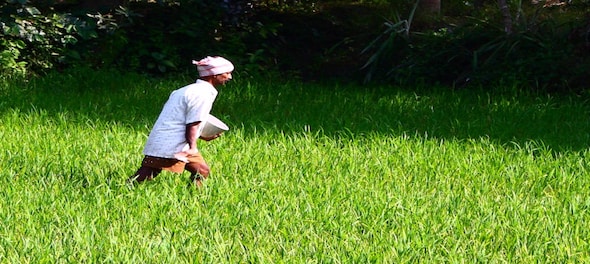
The demand for manure is at an all-time high as the collapse of global supply chains have led to prices of synthetic fertilisers skyrocketing. Manure made from pigs, horses, cattle and even human biosolids is rapidly gaining popularity among farmers as they struggle to find enough synthetic fertilisers.
"There is a shortage of MOP (muriate of potash) and DAP (diammonium phosphate) fertilisers. We had a meeting with the Centre. The Union Agriculture Minister has guaranteed us that we would have fertiliser supply by December 14," Pradip Mazumdar, the Bengal government's Agriculture Advisor told Krishi Jagran, a magazine dedicated exclusively to agriculture.
What happened to synthetic fertilisers?
Synthetic fertilisers use coal and natural gas as some of raw materials. These synthetic fertilisers are used by farmers the world over to increase the yield of the crops by introducing nutrients like phosphate, nitrogen, sulphur and potash. These nutrients help crops grow faster and have bigger yields.
But the world is facing an acute crisis of fossil fuels like coal, petroleum and natural gas due to lower production and higher than expected demands. In such an environment, prices of energy resources have increased significantly over the year and most of the already falling short production is only being diverted towards the energy sector.
Also read: Govt approves additional subsidy package of Rs 28,655 crore for nutrient-based fertilisers
Another key ingredient, urea, is in short supply as global supply chains have broken down. This has further exacerbated the production issues for synthetic fertilisers.
As a result, manufacturers of synthetic fertilisers have been slowing down production as well. As a result, demand has outstripped supply, leading to a rapid increase in fertiliser prices.
What about manure?
Unlike fertilisers, manure is made from biosolids from different farm animals, or even humans in some cases. Most manures are organic, rarely containing additional chemicals. While not as effective in the short term as synthetic fertilisers, manure has greater benefits in terms of soil quality and health.
With synthetic fertilisers in short supply or available at high prices, many farmers have turned back to manure. But the most basic economic principle acts out here as well, with demand suddenly increasing and supply unable to keep up, so manure prices are starting to increase as well.
India’s story
India’s agricultural sector is still the biggest in terms of employment and the government ensures that farmers are protected by providing subsidies for fertilisers. India has for years capped the price of urea at Rs 5,360 per tonne (excluding taxes), while global prices are 14X as much.
While India does not cap the prices of DAP, a commonly-used synthetic fertiliser, it does keep the price fixed by adjusting the subsidy offered on it. DAP usually sells for Rs 25,000 while global prices are double that.
(Edited by : Shoma Bhattacharjee, Yashi Gupta)
Check out our in-depth Market Coverage, Business News & get real-time Stock Market Updates on CNBC-TV18. Also, Watch our channels CNBC-TV18, CNBC Awaaz and CNBC Bajar Live on-the-go!


In Ayodhya, voters talk of a promise fulfilled and yearning for development
May 17, 2024 2:10 PM
Fight of heavyweights in Sambalpur where farmers, weavers hold the key
May 17, 2024 12:25 PM
Odisha: Fight of heavyweights in Sambalpur where farmers, weavers hold the key
May 17, 2024 10:22 AM
Lok Sabha Election 2024: What rural Delhi wants
May 16, 2024 10:10 PM

